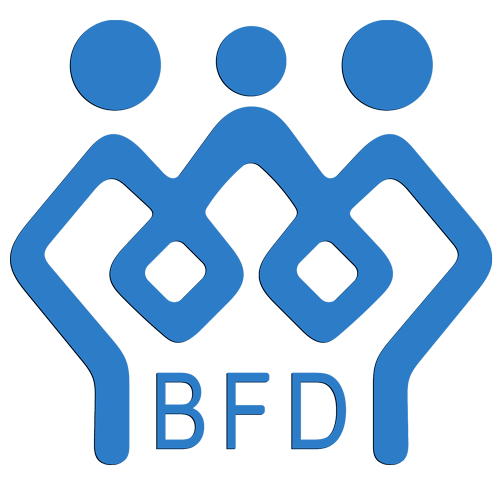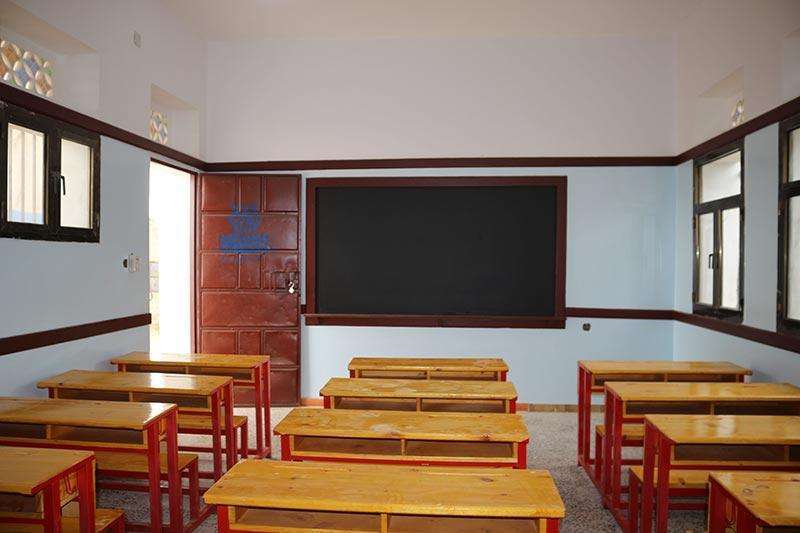Alluhaya and Al Qanawis Districts – Al Hudayda Gov – Yemen.
Hovels (Oshas), ruins, and shades of walls, metaphorically called (School Buildings). Going to school in Alluhaya and Al Qanawis Districts can mean sunstroke and exposure to diseases and epidemics. Education is a human right for all children, including the IDP boys and girls of all ages and capabilities; besides, it is the key to homeland development. However, several challenges have resulted in low access to education for thousands of children, and what added insult to injury is the aggressive war, which led numerous families to displacement and left them without shelter, health, and education.
“Our project targeted Al Hudaydah Gov according to all the classifications, whether before or after the war,” Dr. Ali Al-Mandaleeq explains, the Executive Director of BFD. He continues, “Al Hudaydah is the poorest Gov in the Republic of Yemen, without any dispute. On top of that, Al Qanawis and Alluhaya Districts, that are highly affected districts at the governorate level for two reasons:
The indicators of displacement;
The location of them, in which they are close to conflict-affected areas where the war is taking place. Consequently, a large number of IDPs flee to these districts.”
In this context, BFD, and its partner the NRC, funded by ECW, managed to assist those in need of education through implementing various activities:
Supporting Teachers with Incentives, Teachers’ Kits, and Pieces Of Training
“I teach, to build an educated and productive generation for the homeland.” That’s what Maryam Haddad started saying, the principal of Om Salamah School – Al Qanawis District.
BFD has carried out pieces of training to develop teachers’ skills, so they can help even more children to make the most of their education. The pieces of training aimed at preparing teachers to implement the main activities of training manuals such as basic teacher skills, life skills, and education management in crises through training and qualifying volunteer teachers and Fathers and Mothers Councils (FMCs). Besides, BFD prepared standards-based life skills, as new guidelines for the education sector in Yemen, in coordination with a group of specialists, working at the Ministry of Education.
“These programs included 63 teachers, school administrations, volunteers, and 63 Fathers & Mothers’ Councils (FMCs), aimed to provide children with life skills that they must acquire to communicate in their society normally.” Eshraq Hassan said, one of the trainers. She continued, “Such those pieces of training make a student the core in the educational process, in receiving knowledge, and in gaining experience.” The ability to share the gains of one’s life experiences is essential. Furthermore, the shared experiences reflect on what should be taught and provided opportunities for students to learn well.
“When the trainees gain certain experiences and skills from the training, it is their duty and responsibility to pass them on to other teachers.” Tahani Mohammed explains, one of the trainers. She also added saying, “In turn, the other teachers reflect the experiences on their students; additionally, the trained teachers can train other teachers in order to share the benefit with everyone.”
Moreover, the education team provided 134 teachers with incentives and teachers’ kits at the 7 schools in the two districts. Hence, teachers have become more enthusiastic, in which they expressed their feeling delightedly. “I enjoy teaching,” Maqrani says. “As a teacher, you have the ability to assist everybody, regardless of their background. I encourage my students to become teachers so they can support more IDP children.”
Supporting Students with School Bags, Recreational Kits, Hygiene Kits, and Sanitary Kits
“I like attending school to learn. If I couldn’t go to school, I’d be illiterate.” Radhya Abdul Karim explains, one of Al-Wifaq IDP female students.
The education program at BFD was able to fulfill a dream of more than 4,200 displaced and most vulnerable students in Al Qanawis and Alluheyah Districts by distributing school bags, recreational kits, hygiene kits, and sanitary kits. As a result, students became happier with their new pens, pencils, notebooks, binders, paper, backpacks, crayons, drawing books, sharpeners, erasers, nail clippers, soaps, toothpaste, and toothbrushes. More importantly, studying in well-designed and safe classrooms made them feel secure and valued. Accordingly, self-esteem increases, and students become motivated to engage in the learning process.
“Studying on the ground is difficult! We cannot write and we cannot learn well,” Radhya Abdul Karim explained when the communication team of BFD asked her before the intervention. However, she was overjoyed when we met her after the intervention in the classroom that she studies in, where she expresses her feeling, “Now, praise be to God, they built a school for us, with chairs, fans, boards, and WaSH facilities.”
Smiles spread across the faces of those students, and they became pleased and more excited to continue their education so that each one of them would grow up and have a role in building their society.
Building and Rehabilitating Safe Learning Environments (Classrooms & WaSH facilities)
“On the hottest days, the children would fall sick. When it rained they’d have to run home for shelter.” Ibrahim Maqrni explains, a teacher at Al-Wifaq School. Hence, BFD, and its partner, the NRC, with generous support from the ECW, constructed 22 new TLSs, rehabilitated 33 old classrooms, constructed/rehabilitated WaSH facilities, including gender-sensitive for 26 latrines with cleaning materials, provided schools with learning and TLS/Schools kits, furniture, and solar energies. These classrooms are currently hosting children from the local community, returnees, and displaced children, in which enrollment in those targeted schools has doubled, and the education conditions have improved significantly.
“I feel sorry when I see the little students, studying in the schoolyard in some huts, it hurts me a lot,” Ibrahim Maqrni expressed when the communication team asked him before the intervention. Nonetheless, He was delighted when we interviewed him after the intervention, and he added saying, “I am over the moon that my dream has become true. We did not expect that we would have a school under these circumstances. Truly, this is the real benefit and the biggest wish in our life.”
Generally speaking, education is essential for building the current and next generations, as well as for building the homeland. All these educational activities contributed to the return of children to school after the period of conflict, and the Coronavirus epidemic (COVID-19). Furthermore, BFD ensured that the process of education should continue in systematic and legal methods by handing over all the implemented activities to the education offices and the Ministry of Education.







